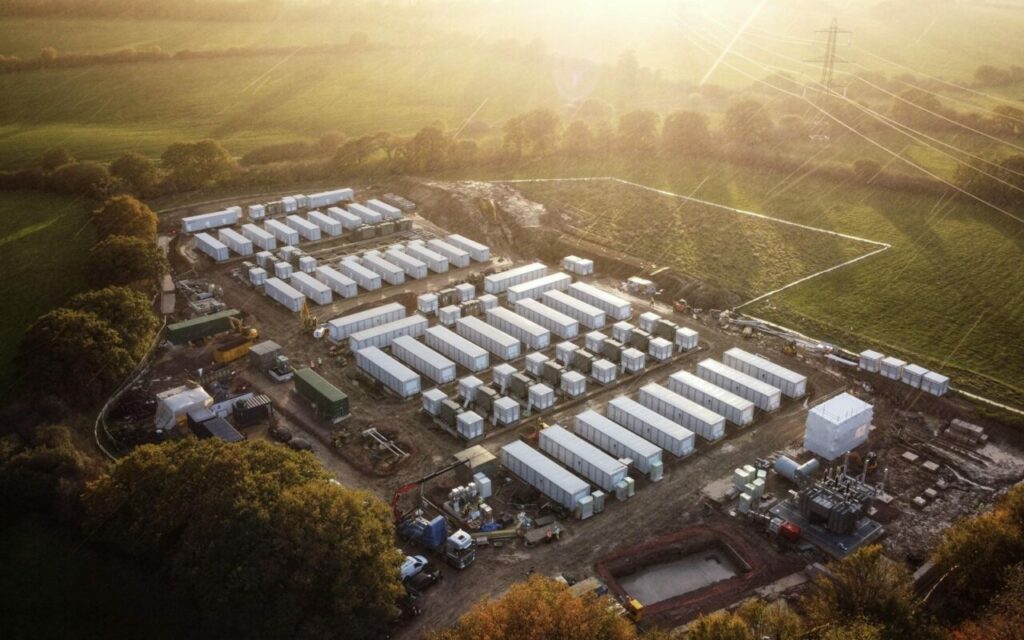
An article published by Bloomberg on Monday (19 February) has forecasted a “burst of activity” in large-scale battery energy storage systems (BESS) across Europe.
The publication estimated a sevenfold increase in capacity to over 50GW, which will be connected to transmission networks by 2030, with the UK, Ireland, and Italy leading the way in both investment and development.
The UK added more large-scale capacity in 2022 than any other nation and is predicted to quintuple its energy storage capacity by 2030, according to Bloomberg.
The site suggested that the upcoming surge of BESS projects in Europe is the result of the US Inflation Reduction Act, which offers investment tax credits for domestic solar, battery and electric vehicle (EV) factories.
The article quoted Ryan Kavanagh, chief executive officer of Harmony Energy Storage, who said: “France, Germany, Poland are seeing what’s happening in the UK and saying, ‘Great, batteries work’. Let’s embrace and change policy to enable them.”
The UK’s role in the BESS sector was also emphasised by several speakers during this week’s Energy Storage Summit 2024, who often praised the industry’s approach.
For example, Tom Palmer, head of business development at Zenobe Energy, called energy storage “perhaps the most complex energy asset to optimise” from a market perspective. However, with a fleet of around 6.5GW large-scale assets in operation, it seems the UK is already optimising it to a considerable extent.”
The government has supported this optimisation by including energy storage in the majority of energy policy, including granting a 20% VAT exemption for small-scale domestic installations.
As a result of the Spring Statement 2022, energy-saving domestic equipment such as heat pumps and roof-mounted solar have been exempt from the VAT, alongside BESS, if it is installed with other energy-saving materials such as solar.
From 1 February 2024, this legislation extended to include retrofitted BESS as well as newly installed, so the exemption applies to every type of installation.
Forward-thinking
An obvious next step for the UK to take in growing its national energy storage portfolio is to begin accounting for long-duration energy storage (LDES). Projects which develop long-duration systems aim to be able to store greater amounts of energy and discharge them over a longer period of time.
In January 2024, the UK government launched a consultation on its proposals for kickstarting investment into LDES, which proposed a cap-and-floor mechanism for the technology to aid existing issues around LDES deployment.
An estimated 20GW of deployments between 2030 and 2050 could result in system savings of £24 billion and will deliver a smart and flexible energy system that can integrate low-carbon power, heat, and transport.
In aid of the development of said system, Aura Power was granted planning permission for a 100MW/400MWh LDES battery energy storage project in December 2023.
Located in Capenhurst, Chesire, the 4-hour duration BESS received permission from both Cheshire West and Chester Council to begin development.
The Capenhurst battery storage project is the third UK project from the Bristol-based developer to receive planning permission this year. This includes Aura’s 49.9MW Horton Solar Farm located in East Devon and its 49.9MW Hawthorn Pit Solar Farm in Durham.